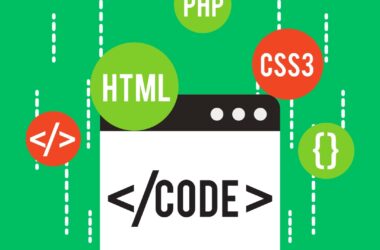Embarking on the journey of exam preparation can be a daunting task, often accompanied by stress and anxiety. However, the key to success lies in adopting proven techniques that alleviate the pressure and pave the way for a well-rounded education. This article will delve into effective strategies that have stood the test of time, guiding you toward a stress-free approach to preparing for exams. From active learning methods to time-tested study habits, this exploration aims to equip you with the tools necessary for success, ensuring your educational experience is both fulfilling and prosperous. So, let’s dive into the realm of stress-free exam preparation and discover the path to achieving academic excellence.

Here are 20 proven techniques for stress-free exam preparation
Embarking on the journey of stress-free exam preparation is pivotal for academic success. To ensure a plagiarism-free exploration of the 20 proven techniques, let’s delve deeper into each strategy:
Initiate Early Study Sessions
Starting your study sessions well in advance is not merely a recommendation but a fundamental principle. Procrastination often leads to stress, making it essential to initiate the learning process early. This strategy allows for a thorough understanding of the study material, reducing the risk of last-minute panic.
Craft an Organized Study Schedule
Breaking down the study material into manageable chunks is the cornerstone of effective exam preparation. This involves creating a detailed study schedule that aligns with your unique pace and daily commitments. A well-organized schedule ensures a systematic and consistent approach to learning, mitigating the stress associated with cramming.
Select a Serene Study Environment
The significance of the study environment cannot be overstated. Opting for a quiet and distraction-free space enhances concentration and absorption of the subject matter. This intentional choice of environment contributes significantly to stress reduction during study sessions.
Establish Realistic Study Goals
Setting achievable goals for each study session is a proactive measure against academic overwhelm. Attempting to cover extensive material in one sitting often leads to frustration and stress. By breaking down the study material into realistic goals, a sense of accomplishment is fostered, boosting motivation and reducing stress levels.
Incorporate Regular Breaks
The importance of taking breaks during study sessions cannot be emphasized enough. Integrating short breaks every 30–60 minutes is a strategic move to prevent burnout and maintain focus. Physical activity during these breaks rejuvenates the mind, ensuring sustained concentration throughout the study period.
Prioritize Nutritious Eating
Elevate Exam Preparation: The connection between a healthy diet and academic performance is profound. By consciously incorporating nutritious foods into your diet, you provide your body and mind with the essential fuel required for sustained focus and energy during study sessions.

Significance of Nutrition
Nutrition is not just about physical health; it significantly influences cognitive function. A well-balanced diet ensures that your brain receives the necessary nutrients to operate optimally, ultimately enhancing your ability to absorb and retain information.
Ensure Sufficient Sleep
The cornerstone of cognitive function lies in the importance of sleep. It’s not merely a period of rest but a vital component for optimal cognitive performance. Achieving 7-8 hours of restorative sleep each night is crucial for memory consolidation. During this time, the brain processes and organizes the information acquired throughout the day. This process is essential for effective learning and the retention of study material. Sufficient sleep ensures that the information you’ve studied is effectively encoded into your long-term memory, contributing significantly to successful exam preparation.
Essential for Learning and Retention
During sleep, the brain processes and organizes information acquired during the day. This process is crucial for effective learning and the retention of study material, making sufficient sleep a non-negotiable component of successful exam preparation.
Navigating Academic Demands
Academic life often comes with stressors. Cultivating healthy stress management techniques is essential for navigating the demands of academia. Engaging in activities such as exercise, yoga, or meditation serves as a proactive approach to mitigating stress, creating a mental environment conducive to focused learning.
Embrace Active Recall:
Beyond Passive Studyin
Active recall is a transformative approach to studying. Instead of passively reading or re-reading notes, actively engaging with the material through techniques like self-testing or creating practice questions enhances comprehension and reinforces the retention of information.
Efficient Learning
This shift from passive to active studying not only makes the learning process more efficient but also ensures that the knowledge is deeply ingrained, improving your ability to recall information during exams.
Utilize Mnemonic Devices
Enhancing Memory Retention: Mnemonic devices are powerful tools for enhancing memory retention. These memory aids, ranging from acronyms to rhymes, serve as creative and efficient shortcuts for recalling information.
Adding a Creative Dimension: Integrating mnemonic devices into your study routine adds a creative dimension to learning, making the material more engaging and memorable.

Form Collaborative Study Groups
Boosting Motivation: Study groups offer a dynamic learning environment that goes beyond individual efforts. Collaborative learning not only boosts motivation but also provides exposure to diverse perspectives, enriching your understanding of the material.
Community Learning: By actively participating in study groups, you not only share your insights but also gain valuable insights from peers, fostering a sense of community and mutual support.
Seek Academic Support
Proactive Step towards Success: Seeking academic support, such as attending office hours or engaging with professors and teaching assistants, is a proactive step toward academic success. It demonstrates a commitment to understanding challenging concepts and a willingness to invest effort in your education.
Clarification on Challenging Concepts: Don’t hesitate to reach out for clarification on challenging concepts. Professors and teaching assistants are there to help guide you through the material, ensuring that you have a solid foundation for success.
Prioritize Pre-Exam Sleep
Instrumental for Cognitive Function: The night before the exam is critical for ensuring peak cognitive function. Prioritizing a good night’s sleep contributes to a well-prepared and focused mindset on the day of the examination.
Optimal Mental State: Adequate rest ensures that you approach the exam with a clear mind, enabling you to recall information efficiently and perform at your best. It’s a strategic investment in your mental readiness for the challenges ahead.
Eat a Healthy Breakfast
Boosting Energy Levels: Consuming a healthy breakfast on the day of the exam is not merely a routine; it’s a strategic move to boost your energy levels. The right combination of nutrients provides sustained energy throughout the exam, enabling optimal cognitive function and focus.
Enhancing Cognitive Performance: A well-balanced breakfast, rich in nutrients, ensures that your brain has the fuel it needs to operate at its best. This simple yet crucial step contributes significantly to your overall readiness for the challenges ahead.
Arrive at the Exam Early
Promoting Relaxation: Being punctual on exam day is more than a matter of timing—it’s a key factor in promoting relaxation. Arriving early allows you to acclimate to the environment, reducing stress and creating a sense of calm that positively impacts your overall mindset.
Setting a Positive Tone: Early arrival sets a positive tone for the exam, signaling readiness and confidence. This proactive approach minimizes the rush and anxiety associated with being pressed for time.
Read the Instructions Carefully
Clarifying Expectations: Reading the instructions carefully is not just a formality; it’s a crucial step in clarifying the expectations of the exam. Understanding the guidelines ensures that you approach each section accurately, minimizing the risk of misinterpretation.
Optimizing Performance: Clear instructions lay the groundwork for an organized and efficient exam-taking experience. This proactive reading ensures that you utilize your time effectively and focus on the most relevant information.
Answer the Easy Questions First
Building Confidence: Tackling the easy questions first is a strategic approach to building confidence. By starting with familiar and manageable tasks, you create a positive momentum that carries through the exam.
Effective Time Management: Answering the easy questions early optimizes your time, allowing you to allocate more effort to challenging sections later. This approach contributes to a steady and controlled pace throughout the exam.
Don’t Spend Too Much Time on Any One Question
Preventing Time Pressure: The decision not to linger on one question is a proactive measure to prevent time pressure. If a question proves challenging, moving on and returning later, if time permits, ensures that you don’t sacrifice other sections due to excessive focus on a single item.
Maintaining a Balanced Approach: Managing your time effectively ensures that each question receives the attention it deserves, maintaining a balanced approach that maximizes your overall performance.
Proofread Your Work Before You Submit It
Ensuring Accuracy: Proofreading is not a mere formality; it’s a critical step in ensuring the accuracy of your responses. Carefully reviewing your work minimizes the risk of errors, contributing to the overall quality of your exam submissions.
Demonstrating Attention to Detail: A meticulously proofread exam demonstrates your attention to detail and commitment to presenting your best work. This final check reinforces the professionalism and thoroughness of your responses.
Relax and Do Your Best:
Cultivating a Positive Mindset: The directive to relax and do your best is a reminder of the culmination of your preparation. It’s a moment to trust in your efforts and approach the exam with a positive mindset, fostering a sense of calm and confidence.
Acknowledging Preparation: By embracing a relaxed state, you allow your mind to function optimally, drawing upon the knowledge and skills acquired during your preparation. This mental state is conducive to showcasing your true capabilities during the exam.
Additional tips
Find a Study Buddy or Group
Staying Motivated: Connecting with a study buddy or group is more than a social endeavor; it’s a motivational strategy. Collaborative learning fosters a sense of shared goals and accountability, providing the motivation needed to stay on track during the study process.
Diverse Perspectives: Interacting with peers exposes you to diverse perspectives and study techniques, enriching your understanding of the material. This collaborative approach not only reduces the feeling of isolation but also enhances the overall learning experience.
Reward Yourself for Reaching Study Goals
Positive Reinforcement: The concept of rewarding yourself serves as positive reinforcement for reaching study goals. Acknowledging and celebrating small achievements along the way not only boosts motivation but also creates a positive association with the study process.
Sustaining Motivation: Integrating rewards into your study routine provides a tangible incentive, sustaining your motivation and making the journey towards your academic goals more enjoyable.
Take Practice Exams
Format Familiarity: Engaging in practice exams is a strategic move to familiarize yourself with the format and time constraints of the actual exam. This proactive approach minimizes surprises on exam day, contributing to a more confident and efficient performance.
Effective Time Management: Practice exams serve as a valuable tool for refining your time management skills. By simulating exam conditions, you can assess your pacing and make adjustments to ensure optimal performance during the actual test.
Visualize Yourself Succeeding
Positive Visualization: The practice of visualizing success is a powerful psychological tool. By picturing yourself succeeding on the exam, you cultivate a positive mindset. This mental imagery enhances confidence and reduces anxiety, contributing to a more focused and successful performance.
Building Confidence: Visualization reinforces the belief in your capabilities, instilling a sense of self-assurance that positively impacts your approach to challenging exam situations.
Talk to a Counselor
Managing Overwhelm: Seeking support from a counselor is a proactive step when feelings of being overwhelmed arise. This strategy recognizes the importance of mental well-being during the academic journey, providing a dedicated space to address challenges and develop coping mechanisms.
Holistic Support: Counselors offer holistic support, addressing not only academic concerns but also the emotional and psychological aspects of the student experience. This comprehensive approach contributes to a healthier and more resilient mindset.
In conclusion, by incorporating these additional tips into your exam preparation, you not only enhance your study approach but also prioritize your mental and emotional well-being. Remember, managing stress is a shared experience, and seeking healthy coping mechanisms ensures a more positive and successful academic journey.








